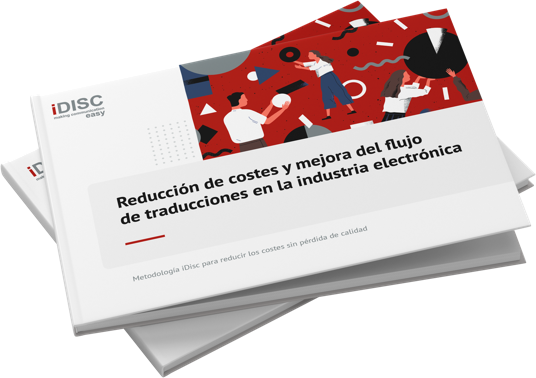Professional Quechua translation
We are a translation agency with extensive experience in professional translation both to and from Quechua
We offer Quechua translation, localization and transcreation services to help you adapt your content and ensure that the right message reaches the right audience.
We have the people, tools, and knowledge to offer a comprehensive service, for both urgent and large translations, in more than 100 different languages and with all the quality guarantees you would expect.
Why translate into Quechua?
More than 10,000,000 native speakers
89th language in the world by total number of speakers
1st Amerindian language with the most speakers
An official language in 4 countries
Benefits of translating into Quechua
A direct connection to the local community

Quechua: a language that is gaining importance
Until a few years ago, Quechua was used only as a colloquial language at home and in markets, buses and public or commercial spaces in general. In some regions in particular, Quechua was relegated to family use because it was considered an unofficial indigenous language.
In the last decade, however, public administrations in Bolivia, Ecuador and Peru have been making efforts to incorporate Quechua into all areas due to its importance and its recognition as an official language. For this same reason, it is now mandatory to teach Quechua in schools and universities, and in Bolivia it is even a requirement to speak two or three languages in order to work in public institutions. As a result, many official institutions are already providing their employees with training in one of these native languages or hiring personnel who are already proficient in them.
In addition, Quechua is gradually being incorporated into signage systems. For example, in Peru it is used on signs in streets and squares and in Bolivia it appears on posters and signs in many hospitals and some consulates. All of this shows that Quechua is becoming increasingly important and that it is necessary to continue fostering a growing appreciation of the language.
Thanks to translation into Quechua, your company can achieve:
Facilitate communication and increase customer and supplier confidence
Save time, money, and avoid errors in managing communication
Expand into new markets and increase international sales
Extend the global reach of your business and reach a wider audience
Quechua translators: Specialized native professionals
Teams of certified professional translators
Native Quechua translators
We work with translators from different regions who, in addition to being fluent in Quechua as their mother tongue, are familiar with the local socio-cultural environment. We have more than 2,000 professional translators, and we select the team that best fits each project to ensure the best quality and accuracy for your translations.
Quechua translators who are experts in your industry
Our team of accredited translators has experience with clients from all over the world. It is made up of specialists in different sectors and industries who know the specific characteristics and the technical terminology of each area.
Certified quality
At iDISC, we are certified in ISO 17100 for translation services, ISO 27001 for information security, ISO 9001 for quality of service, and ISO 18587 for machine translation post-editing. We also have the Trados and MemoQ seals, which are a further guarantee of our solvency and professionalism.
Translation of texts into Quechua
Improve your chances of reaching your target audience with better content.









Quechua translations specialized in your industry
Language services for Quechua
Learn more about our translation services
Where is Quechua spoken?
Quechua is a family of languages spoken around the southwestern Andes mountain range. It originates from the central and western region of present-day Peru. It was the official language of the Inca empire and spread throughout its territory. It is now widely spoken in parts of Peru, Ecuador, Bolivia and Colombia, and is also present in regions of Argentina, Brazil and Chile.
Countries where Quechua is an official language:
Quechua is an official language in Bolivia and Ecuador, as well as in certain regions of Colombia and Peru.
Main language pairs for translation into Quechua
Translation from Quechua to Spanish – Spanish to Quechua
The relationship between Spanish and Quechua is deepl-lying, dating back to the initial contact between the Spanish and native peoples. From the outset of the colonial period, Spanish was imposed as the official language, but Quechua was also widely used, particularly for catechizing the native population. Spanish is the official language in the three countries where Quechua is spoken: Peru, Ecuador and Bolivia. Therefore, the demand for translation between Spanish and Quechua is vital to ensure that the entire population of these countries has equal access to information, government, and social services. Spanish to Quechua translation is currently used in a broad range of contexts, including education, health, government, and media.
Translation from Quechua to English – English to Quechua
Unlike Spanish, English does not have a long history of direct contact with Quechua. However, English has become a global language and its teaching is highly valued in Peru, often in contrast to Quechua. In response to this disparity, educators have begun to innovate in the teaching of Quechua. For instance, they have worked on translating and dubbing clips from popular films and programs into Quechua, allowing the language to be used as a living tool for communication and artistic expression. Increasing bilingualism and globalization are encouraging greater exchange between these languages, especially since Quechua speakers seek to participate in broader and more diverse contexts.
Translation from Quechua to other Andean languages
Quechua is closely related to other native languages of the original peoples of the Andes, such as Aymara, Puquina, and Uru. As these languages gain a foothold in the public sphere, the demand for translation between them has increased, not only to promote bilingualism and linguistic preservation but also to affirm cultural identity and strengthen communication among the diverse native peoples of the Andean region.
Translation services for all languages
Aymara | Albanian | Arabic | Azerbaijani | Basque | Belarusian | Bosnian | Bulgarian | Catalan | Chinese | Croatian | Czech | Danish | Dutch | English | Estonian | Finnish | Flemish | French | Galician | German | Greek | Guarani | Hebrew | Hindi | Hungarian | Icelandic | Indonesian | Irish | Italian | Japanese | K’iche’ | Korean | Kurdish | Latvian | Lithuanian | Macedonian | Maltese | Mongolian | Norwegian | Persian-Farsi | Polish | Portuguese | Punjabi | Romanian | Russian | Serbian | Slovak | Slovenian | Spanish | Swedish | Thai | Turkish | Ukrainian | Valencian | Vietnamese
Quechua translation process
- Sending of documentation specifying the languages to be translated into and the desired delivery date.
- Word count and sending of quote.
- Confirmation of quote and delivery date.
- Selection of the specialized team for the project.
- Preparation of files, glossaries, and translation memories.
- Translation into Quechua by one or more specialized native translators.
- Review by a second linguist.
- On-time delivery.
Advantages of our method
Learn about the advantages of our translation method
Frequently asked questions about Quechua translation
What kind of documents can we translate into Quechua?
How to request a Quechua translation?
How is the price of a Quechua translation calculated?
How long does a Quechua translation take?
What guarantees are in place to ensure translation quality and confidentiality?
At iDISC, we comply with the ISO 9001, ISO 17100, and ISO 18587 quality standards, which establish requirements for professional competence and processes in translation services to ensure that translations are fit for purpose.
With ISO 27001-accredited processes and in compliance with the GDPR, we also ensure the confidentiality of your translations and protect all your information with the latest cybersecurity tools, using secure systems for the storage, access to, and transmission of documents.
You may also be interested in:














